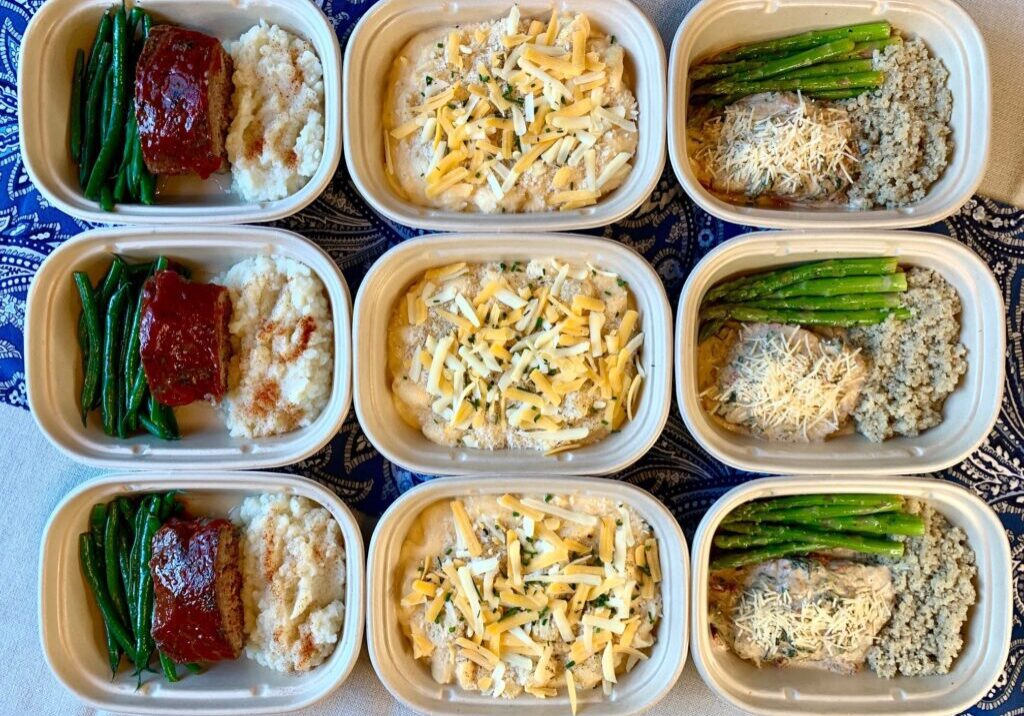A New Take on Clean Eating – Washington State’s PFAS Ban

Facebook
Instagram
Youtube
Twitter
Pinterest
What Are PFAS?
Beginning this year, certain types of food packaging that have per- and polyfluoroalkyl substances (PFAS) intentionally added to them may not be manufactured, sold, or distributed here in Washington State. While these substances help prevent messes, make cleanup easier, and make things stain- and water-resistant, their chemical makeup also means that they are virtually indestructible.
When used in food packaging, PFAS end up in landfills and make their way into our water. PFAS have also been shown to be both prone to accumulating in the human body (Federal tests show than 98% of American have them in our blood!) and toxic to humans and animals alike. For this reason, PFAS are also known as “forever chemicals.” With these impacts in mind, it’s no wonder our state has taken action to remove sources of PFAS from our food and our environment.
Since Well-being is one of our core values at Honest to Goodness and the health of our clients is one of our top priorities, we have been closely following developments in food packaging technology. Honest to Goodness has long provided and recommended compostable and recyclable containers and packaging for both meal prep and in-home catering. We also chose PFAS-free compostable containers for our Eats Amore Meal Delivery services and are glad to hear that the packaging company we use, Good Start Packaging, has a goal of being completely PFAS-free by the end of this quarter.
If you’d like to reduce your own exposure to PFAS, here’s what to look out for and some alternatives you can select instead:

Food Wraps
While research varies on whether traditional plastic wraps can leach chemicals into our food, other types of wrappers, like the grease-proof wraps on takeout burgers, have been shown to contain PFAS. When you wrap food from home, try a natural alternative like Bee’s Wrap. It’s made from organic cotton with a blend of beeswax, plant oil, and tree resin.
Meal Containers
Bento boxes are all the rage these days, from the lunchroom to the boardroom. They’re available in a wide variety of colors, configurations, and materials. While some of the plastic versions claim to be PFAS-free, the safest alternative is to choose metal or glass containers instead.
Since Well-being is one of our core values at Honest to Goodness and the health of our clients is one of our top priorities, we have been closely following developments in food packaging technology. Honest to Goodness has long provided and recommended compostable and recyclable containers and packaging for both meal prep and in-home catering. We also chose PFAS-free compostable containers for our Eats Amore Meal Delivery services and are glad to hear that the packaging company we use, Good Start Packaging, has a goal of being completely PFAS-free by the end of this quarter.



Non-Toxic Cookware
It’s time to let go of your nonstick pans, cooking sheets, and baking dishes! When purchasing their replacements, look for options that are ceramic coated (without extra nonstick coatings added), or stick with good old reliable stainless steel or cast iron. For baking brilliance, try PFAS-free silicone pans and Silpat mats, which are made of a fiberglass mesh and silicone.
Small Appliances
It may also be time to find alternatives to some of your favorite appliances that have a nonstick coating, such as panini presses and waffle makers. Updated options have ceramic coatings.

The bottom line when reducing exposure to PFAS in food and elsewhere is to do your research. One place to look is the Environmental Working Group’s list of companies that have not intentionally added PFAS to their products. And if a product purports to be grease-, stain-, or water-resistant, look into how they make that happen.
